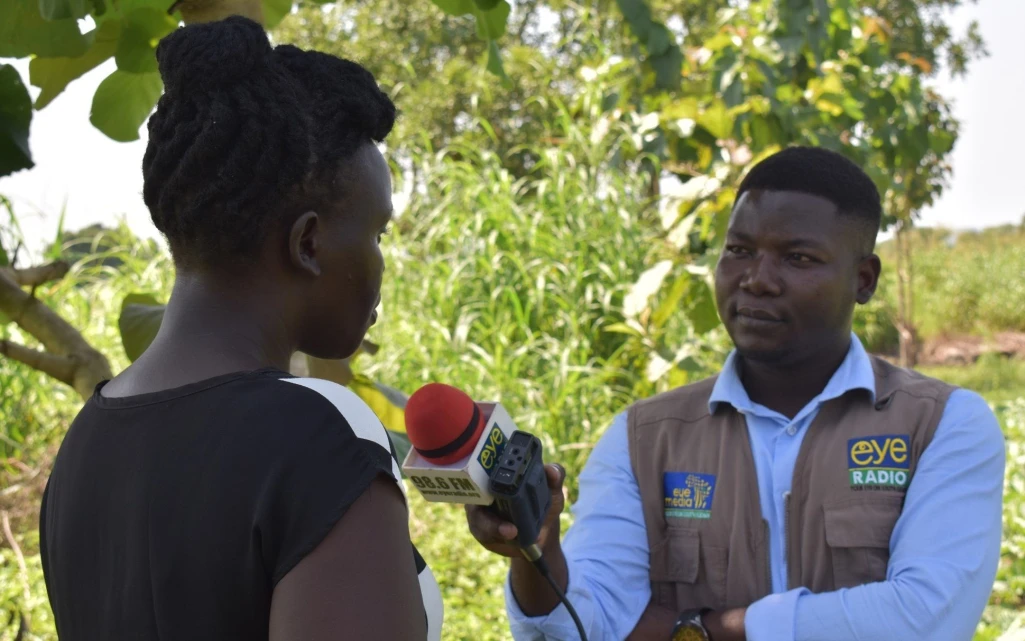
Eye Radio
reporter Charles Wote, who passed away on Saturday at Mulago Hospital in
Kampala, Uganda, at the age of 34 from liver cancer, was a tireless advocate
for the voiceless and a passionate storyteller.
Stephen
Omiri, CEO of Eye Media, reflected on Wote’s relentless drive and passion for
his work.
“He was a man
who taught truth. A man who wanted to speak for the voiceless—a man who went
down at all risks to see that woman, to see that young man who is struggling to
highlight his or her story. And he told the stories from his heart. That’s a man
that we have lost,” Omiri spoke at the requiem mass for the late on Thursday in
Juba.
In the months
leading up to his death, Wote’s health began to decline, though he continued to
work without complaint.
“A few months
ago, Charles Wote was a very healthy young man. Very healthy. None of us knew
him that he was having sickness. Because Charles has no complaints. And he
comes to wake up every single morning at 5 a.m. because he's responsible for
production on a program called The Dawn Show,” Omiri recalled.
“For the last
20 years we have been supported by the U.S. government through USAID. And when
the new administration came into power, the administration of Donald Trump,
USAID funding was suspended. As we speak today, Charles died as a volunteer.”
Omiri urged
political leaders in South Sudan to support the media industry, ensuring
journalists are well-compensated, receive proper care, and work in an
environment free from intimidation and threats.
“Media houses should not be seen as the enemy
of the government. They are the mirror of society. We need your support by
creating a conducive environment for media houses,” he continued.
In June 2023,
Wote won a Hackathon Micro-grant Award to strengthen citizen journalism in Budi
County, Eastern Equatoria State, where he planned to set up a community radio
station.
Once funding
is secured from well-wishers, Omiri promised to carry it forward, sharing that
the station would be named in Wote’s honor, or a tree would be planted in his
memory.
Paulino
Lokudu Obede, deputy governor of Central Equatoria State, praised Wote’s role
as a journalist who advocated for peace.
“He was a
very smart journalist, a champion of fighting climate change, social cohesion,
and ensuring that the country has peace and stability,” Lokudu explained.
Wote's death
has also drawn attention to the lack of medical resources in South Sudan,
highlighting the need for better healthcare facilities.
“His death is
a very strong message to all the stakeholders in this country. It is a message
that we need a good hospital with good medical facilities so that any kind of
infection of any other disease can be treated as soon as possible,” Lokudu
emphasized.
Furthermore,
he echoed that the lack of peace and infrastructure in the country affects not
only health but the overall stability of the nation, calling for more efforts
to build a peaceful environment that could attract investment and modern
medical facilities.
“It is also a
message for us to be pioneers of peace because without peace and if the
government cannot provide, because of the economic situation in the country, at
least with peace we will have investors who can come and establish modern
medical facilities across regions,” he added.
Wote was
recognized by the Media Development Institute in 2022 for his peacebuilding
work and reported on flooding in Jonglei and Northern Bahr el Ghazal in 2020
and 2021.